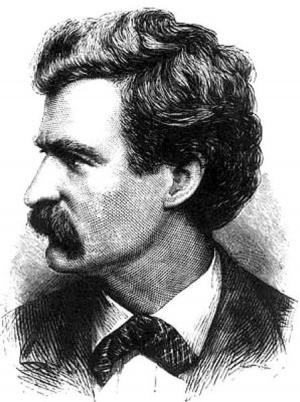Abroad at Home: American Ramblings, Observations, and Adventures of Julian Street
Nonfiction, Religion & Spirituality, New Age, History, Fiction & Literature| Author: | Julian Leonard Street | ISBN: | 9781465622433 |
| Publisher: | Library of Alexandria | Publication: | March 8, 2015 |
| Imprint: | Language: | English |
| Author: | Julian Leonard Street |
| ISBN: | 9781465622433 |
| Publisher: | Library of Alexandria |
| Publication: | March 8, 2015 |
| Imprint: | |
| Language: | English |
Pushing on toward Buffalo as night was falling, my companion and I discussed the fellow travelers who had most engaged our notice: the young engineer from Buffalo, keen and alive, with a quick eye for the funny side of things; the hairless amorist; the genial bore, whose wife (we told ourselves) got very tired of him sometimes, but loved him just because he was so good; the pretty girl, who couldn't make her eyes behave because she was a pretty girl. We guessed what kind of house each one resided in, the kind of furniture they had, the kind of pictures on the walls, the kind of books they read—or didn't read. And I believed that we guessed right. Did we not even know what sort of underwear encased the ample figure of the man with the amazing memory of unessential things? And, while touching on this somewhat delicate subject, were we not aware that if the alluring being who left the train, and us, at Rochester possessed the once-so-necessary garment called a petticoat, that petticoat was hanging in her closet? All this I mention because the thought occurred to me then (and it has kept recurring since) that places, no less than persons, have characters and traits and habits of their own. Just as there are colorless people there are colorless communities. There are communities which are strong, self-confident, aggressive; others lazy and inert. There are cities which are cultivated; others which crave "culture" but take "culturine" (like some one drinking from the wrong bottle); and still others almost unaware, as yet, that esthetic things exist. Some cities seem to fairly smile at you; others are glum and worried like men who are ill, or oppressed with business troubles. And there are dowdy cities and fashionable cities—the latter resembling one another as fashionable women do. Some cities seem to have an active sense of duty, others not. And almost all cities, like almost all people, appear to be capable alike of baseness and nobility. Some cities are rich and proud like self-made millionaires; others, by comparison, are poor. But let me digress here to say that, though I have heard mention of "hard times" at certain points along my way, I don't believe our modern generation knows what hard times really are. To most Americans the term appears to signify that life is hard indeed on him who has no motor car or who goes without champagne at dinner.
Pushing on toward Buffalo as night was falling, my companion and I discussed the fellow travelers who had most engaged our notice: the young engineer from Buffalo, keen and alive, with a quick eye for the funny side of things; the hairless amorist; the genial bore, whose wife (we told ourselves) got very tired of him sometimes, but loved him just because he was so good; the pretty girl, who couldn't make her eyes behave because she was a pretty girl. We guessed what kind of house each one resided in, the kind of furniture they had, the kind of pictures on the walls, the kind of books they read—or didn't read. And I believed that we guessed right. Did we not even know what sort of underwear encased the ample figure of the man with the amazing memory of unessential things? And, while touching on this somewhat delicate subject, were we not aware that if the alluring being who left the train, and us, at Rochester possessed the once-so-necessary garment called a petticoat, that petticoat was hanging in her closet? All this I mention because the thought occurred to me then (and it has kept recurring since) that places, no less than persons, have characters and traits and habits of their own. Just as there are colorless people there are colorless communities. There are communities which are strong, self-confident, aggressive; others lazy and inert. There are cities which are cultivated; others which crave "culture" but take "culturine" (like some one drinking from the wrong bottle); and still others almost unaware, as yet, that esthetic things exist. Some cities seem to fairly smile at you; others are glum and worried like men who are ill, or oppressed with business troubles. And there are dowdy cities and fashionable cities—the latter resembling one another as fashionable women do. Some cities seem to have an active sense of duty, others not. And almost all cities, like almost all people, appear to be capable alike of baseness and nobility. Some cities are rich and proud like self-made millionaires; others, by comparison, are poor. But let me digress here to say that, though I have heard mention of "hard times" at certain points along my way, I don't believe our modern generation knows what hard times really are. To most Americans the term appears to signify that life is hard indeed on him who has no motor car or who goes without champagne at dinner.















